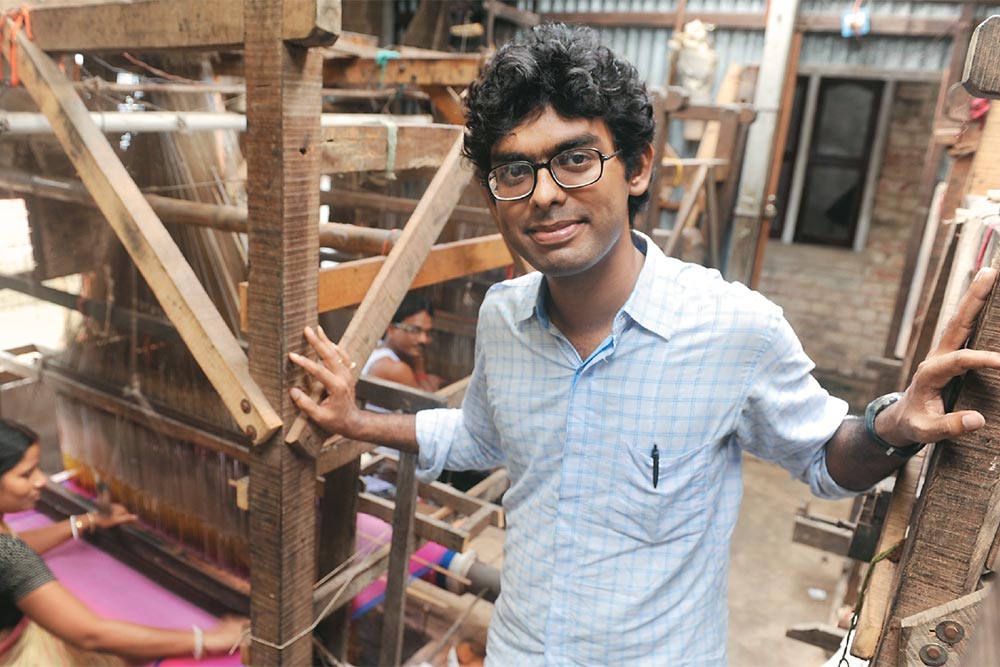As India’s handwoven textile traditions disappear, with them will vanish family histories preserved in the folds of the fabrics. To keep Bengal’s Tangail textile tradition alive, Chirag Gandhi, 24, and Santanu Das, 27, pooled in ₹3 lakh from personal and family savings and launched Maku Textiles in October 2012. What’s interesting about the garments — including scarves, sarees, kurtas, shirts and dresses — is that the designs are based on old Tangail patterns, all in blue and white. The blue comes from indigo, the indigenous natural dye that Gandhi, a Nirma University graduate, and Das (in picture), an NID Ahmedabad passout, want to promote. “We wanted to work with handwoven fabrics as industrialisation has killed the art of weaving. But weavers were sceptical about our venture. We gained their trust by buying their old work and now about 25 weavers work with us,” says Gandhi.
The brand sells readymade garments through social media and exhibitions, though a huge chunk of revenue comes from fabric orders by US-based B2B clients and several Indian designers. Next on the cards: moving base from Ahmedabad to Kolkata to be closer to their weavers.









